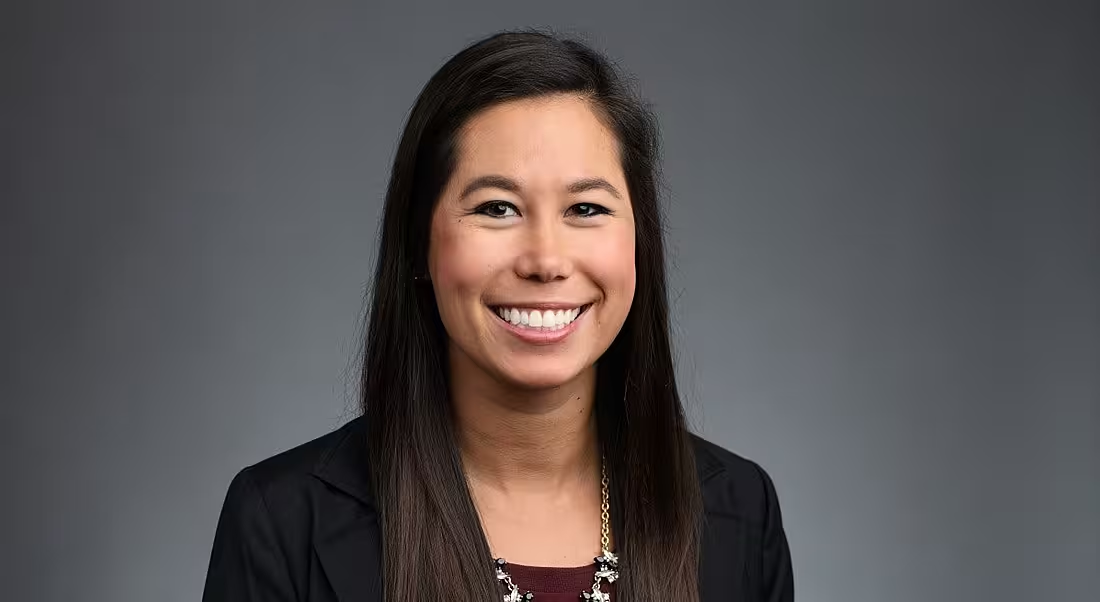Kate Kiyosaki of West Monroe discusses her role as the company’s ‘chief of chiefs’, where she oversees everyone from chief hot sauce officer to chief coffee officer.
Kate Kiyosaki is a senior manager in the healthcare and life sciences practice of US consulting firm West Monroe. She’s also the company’s chief of chiefs – a role that sees her manage a fascinating workplace initiative that allows people to “bring their personal interests and leadership to work while engaging their colleagues in things they care about”.
Here, she tells us all about the company’s chiefs programme.
‘It’s another way our people can flex their leadership skills’
– KATE KIYOSAKI
What has been the motivation behind creating these ‘chief of anything’ positions?
I think people are talking more about work-life integration as opposed to work-life balance, and I find this to be especially true in consulting. It’s more important than ever to be able to bring your whole self to work, and that includes your passions.
Work is more fun when alternating between obligatory client and internal meetings, then heading to our kitchen to try a new cup of coffee from our chief coffee officer, who explains why this roast is one of her favourites.
Work is more fun when, at the end of the day and you’re exhausted, 30 of your peers are encouraging you to go sweat it out by hitting up the gym.
And work is the best when you really care about something like cultural arts and you can share that passion with others by educating peers about the history and storyline of an opera that they otherwise never would have attended. We must be able to integrate our work and our life in order to bring our best selves to work, and it makes us happier.
How do staff members benefit from the programme?
The programme allows anyone at any level to take the initiative to step up and lead something that has visibility and impact. It’s another way our people can flex their leadership skills that can then be brought to the client site.
For example, consultants use these programmes to build on their core consulting skillset – confidence, business case development, budget management, project management, presentation skills, communication and accountability.
Because West Monroe is employee-owned, our chiefs treat their budgets as if it were their own money – which, in a way, it is. Everyone is thoughtful about how to be inclusive, offer diverse options for all different types of employees and find activities in a reasonable price range.
Finally, the programme helps our chiefs build their personal brand, a much-needed skill in consulting and the rest of their professional careers. These programmes get visibility, so the amount of effort put in becomes clear. A successful chief becomes well-known in the company.
How do employees participate in the programme?
There are a couple ways people can participate as a chief. Most of the programmes renew year over year, and the chief rotates out about every two years. For existing programmes, that rotational cadence gives newer or more junior employees who have been very involved in that particular programme a chance to step into the role.
An employee can also propose a new chiefs idea to me throughout the year. I purposely put minimal structure in place to ensure that our chiefs can flex their creativity. I request a one-page business case to receive funding and I’ve never gotten the same format twice. I learn a lot by seeing all the different ways chiefs approach making their case. Most new programmes are approved after a few rounds of feedback and refinement.
For all existing and new programmes, chiefs must create and present an annual business plan and a budget request for their programme. I review each chief’s request line by line and discuss questions, ideas and provide feedback.
Where the chiefs truly shine is when they demonstrate initiative and desire to be a self-starter – once a chief receives funding, it’s up to them to plan, organise, schedule and communicate their events. They are required to attend the events they plan because they are the host and are accountable for its success.
Anyone can apply to be a chief of anything they are passionate about. For example, we have chief hot sauce and friends (just expanded to include pickles and giardiniera), food, adventure, Spanish, keg and cultural arts.
Are there any pitfalls to be mindful of in creating these roles?
We tried bubble soccer once, and HR wasn’t too thrilled with the idea of bashing into your colleagues! Aside from dangerous activities, here are two things to keep in mind.
Firstly, inclusivity. We foster a culture of inclusion and diversity, and we encourage our chiefs to be mindful of the type and timing of events so everyone who wants to be included can be. For instance, only doing Happy Hour events may exclude caregivers who need to be home at a certain time, or people who don’t drink.
Every year, when we go through the budgeting process, we ask the chiefs how they thought about inclusion and diversity when planning their events. If they haven’t, I encourage them to go back with that lens and take another pass at it. It’s fun to see how inclusive these programmes can be when we put our minds to it.
Secondly, tenure. We usually require that someone has been at the company for at least a year or partners with someone with more tenure. We want to ensure that client delivery still comes first and that the chief isn’t taking too much on.
We want to ensure our employees are successful, so it’s a balance between letting a new hire jump into the culture and ensuring they’re ready to take on a large internal commitment along with their client commitments.
Do you have any advice for companies thinking of bringing in more chiefs to their workforce?
Do it! People experience is a critical success factor for any company, especially companies in consulting – our business is our people. When you have the opportunity to let an employee bring their whole self to work, figuring out a solution to embrace it and incorporating people’s passions into the culture is a way to retain your best and brightest, all while helping them develop leadership skillsets both on and off the client site.
Encourage chiefs to groom their successor and pass down their programme every two years – it helps teach the next generation of leaders how to delegate and train others to do their job, allowing them to grow. It also ensures fresh ideas and gives younger consultants and newer hires the opportunity to get involved.
Have an open mind. I first started in the chiefs programme in 2014 when I became the chief running and fitness officer. At the time, I had one goal: get West Monroe involved in the JP Morgan Corporate Challenge.
People were doubtful at first, but the first year we got almost 100 people to join, and now we consistently send more than 150 employees to the Chicago Corporate Challenge and others across the US. Our leadership and marketing teams have been extremely supportive.
Lastly, don’t give the programme too much structure – having it flow naturally is what makes it successful. As soon as there are too many rules and processes in place, it becomes less fun, and once it’s less fun, people will stop volunteering their time.
Have trust in the people who are taking initiative to run the programmes and you may be surprised to see what they come up with and what is successful.




